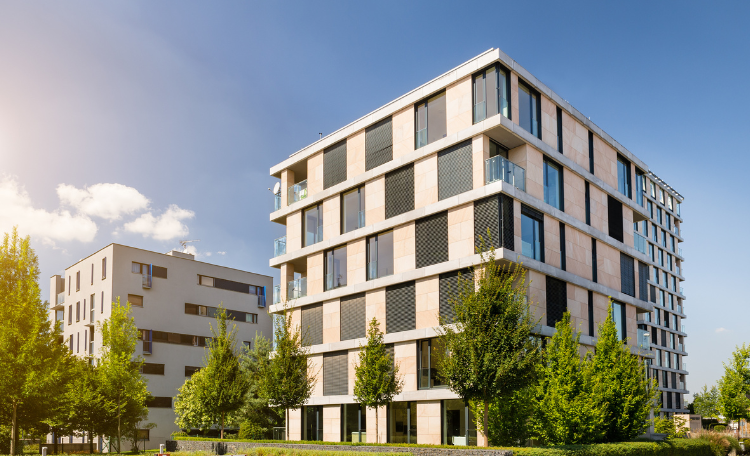Key highlights:
Capital Markets
In 2023, the CEE region saw a notable 55.1% decrease in commercial real estate investment, totalling €5.02 billion, primarily influenced by global economic uncertainties. Hungary mirrored this trend with a significant 43% decline, amounting to €630 million, mainly from domestic sources. Looking ahead, Hungary's real estate market faces the challenge of establishing pricing consensus amidst moderate adjustments. Additionally, there is an expectation of volume investors shifting their focus towards more liquid core markets, seeking larger price discounts, potentially reshaping investment strategies in the region.
Offices
In 2023, Budapest's office market defied European trends with a 19% surge in demand, underscoring its resilience as a cost-effective and strategically situated business hub in the region. Despite global uncertainties, businesses prioritised workspace improvements, leading to a 21% increase in annual net take-up. However, while signalling a rebound from pandemic disruptions, this growth slightly lagged the 10-year average, reflecting ongoing adjustments in work dynamics. Moving ahead, development activity remains robust, particularly in Non-Central Pest and South Buda, with a focus on buildings emphasising prime accessibility and ESG features. Additionally, refurbishment projects are gaining momentum. From an occupier perspective, there is a gradual return to traditional office settings favouring in-person collaboration, alongside considerations for potential reductions in physical office space, reflecting evolving workspace dynamics.
Logistics & Industrial
Nearshoring in Europe, especially in CEE countries like Hungary, has seen a significant uptick amidst economic turbulence and supply chain disruptions. Recent investments, particularly in the automotive sector with a focus on e-mobility, highlight Hungary's strategic position in this trend. The rise in battery production and related activities, such as BYD's establishment in Szeged, fuels demand for regional logistics space. Looking ahead, Greater Budapest faces intensified competition among developers as the logistics stock continues to grow, leading to pricing pressures. In contrast, in regional areas, developers tend to prioritise build-to-suit solutions, maintaining stable prices influenced by factors such as location and project complexity. Moreover, occupiers' growing emphasis on sustainability drives transactions towards buildings with higher ESG credentials, further enhancing the market's outlook.
Retail
With a population exceeding 3.3 million, Budapest stands as the dominant capital in the CEE region, representing over 30% of Hungary’s total population. While Hungary led the CEE region in solid retail sales growth pre-pandemic, the landscape shifted significantly since 2022 due to elevated inflation. Nonetheless, nominal wages continued to grow strongly. Despite challenges, Hungary remains attractive to international newcomers, and the retail sector is striving for full recovery. Shopping centres operate without oversupply concerns, and the retail warehousing market has shown strong resilience. The development market emphasises repositioning and refurbishing aging infrastructure, with 93% of existing shopping centres over a decade old. Despite a surge in online sales during the pandemic, brick-and-mortar stores maintain dominance, accounting for over 90% of total retail sales. Looking ahead, online growth is expected to revert to pre-pandemic levels.
Hospitality
Whilst the hotel industry experienced a stronger than expected recovery in 2022, with many markets setting a “new benchmark” with record top-line performance, the impacts of COVID-19 alongside labour shortages have forced hotels to maintain lean operating structures and focus on driving rates instead of occupancy, improving the bottom line. However, as of the second part of 2022 hoteliers are facing yet another challenge, underpinned by inflationary pressures, geopolitical turmoil and the energy crisis. While this might hurt in the short-term, it will drive unprecedented investment into innovation and technology, energy savings and challenge unnecessary services, leading to even more efficient and sustainable operating models.








